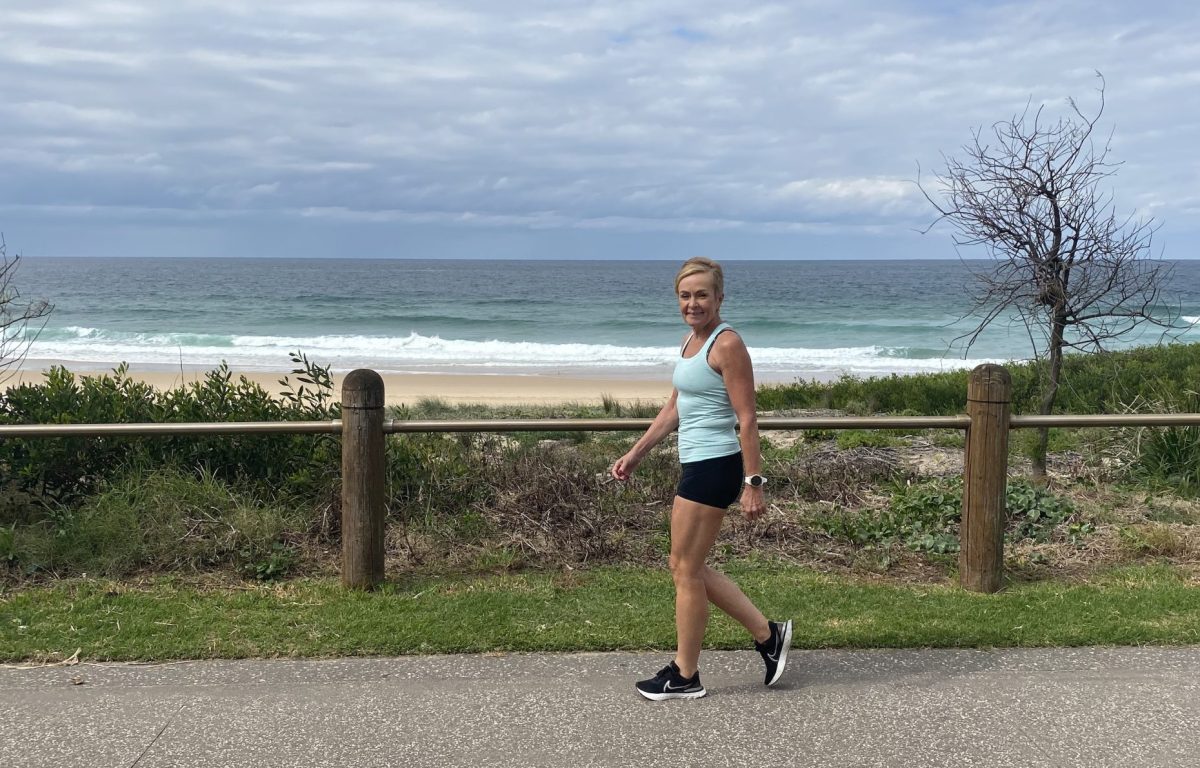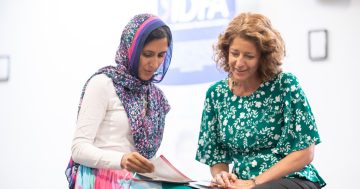
IDFA CEO Carolyn Dews will walk 100 km in April for Stride for Primary Immunodeficiency – an initiative to help shed light on the daily struggles of those with a condition affecting six million people worldwide. Photo: Danae Pikkat.
For thousands of Australians living with primary immunodeficiency (PI), the toughest challenges are the ones no-one can see – but this month, advocates are taking steps to make it harder to miss.
As part of World Primary Immunodeficiency Week (22 to 29 April), Immune Deficiencies Foundation Australia (IDFA) is launching Stride for Primary Immunodeficiency — a national walking initiative bringing visibility, community and hope to those facing life with a hidden immune disorder.
IDFA CEO Carolyn Dews, who has committed to walking 100 km alongside patients and supporters, says the initiative marks a step up in IDFA’s efforts to raise awareness during World Primary Immunodeficiency Week.
“It’s an event we celebrate every year as a patient organisation providing support in that area. We usually have a social media and media campaign but this year, we wanted to do something different,” she says.
“We came up with the idea to encourage our members to take on a challenge – whether that be choosing one day in the month of April to walk, or to cover a certain distance throughout April to raise money to help fund more resources for people living with immune deficiencies.
“I wanted to kick-start the campaign in my own capacity to help the members we work with by walking every day, and challenge myself to raise funds to put back into our organisation.”
Primary immunodeficiency affects about six million people worldwide. This initiative is part of IDFA’s wider mission to make primary immunodeficiencies seen, heard and understood, ensuring that no patient slips through the cracks due to a lack of awareness.
The goal is to raise $5000, which will allow IDFA to distribute 250 educational packs to healthcare professionals across Australia.
These resource packs are designed to improve understanding, recognition, and diagnosis of PI — a group of more than 400 rare and serious disorders that significantly compromise the immune system.
By placing these materials directly into the hands of health professionals, IDFA aims to reduce the rate of delayed diagnosis, improve access to timely, effective treatment, empower healthcare providers with tools to better support their patients and bridge the knowledge gap that often leaves people living with PI feeling misunderstood or overlooked.
“We say it’s a hidden disability, because often people with immune deficiencies look fine, but they face significant health challenges and are required to undergo regular treatment for the rest of their lives,” Carolyn says.
Aside from raising public awareness, IDFA hopes to leverage the campaign to engage as many of its members as possible.
For that reason, it invites people to set their own challenges.
Carolyn – a long-distance triathlete – plans to up the ante on her usual walking routines to meet her goal, walking 4 km on weekdays and 5 km each Saturday and Sunday. But she stresses that goals need not be onerous.
“Our office is not based far from the beach and I walk most lunchtimes anyway, so this will be a question of extending that,” she says.
“We really hope to engage our members in this campaign. We would love for them to do whatever they can – whether it be walking on one day in that month, or setting a distance goal across the entire month – and ask their families, friends and communities to donate to the cause.
“For that reason, the goals are entirely flexible, and can be set based on your lifestyle and fitness level.”
You can learn more about Stride for Primary Immunodeficiencies via Immune Deficiencies Foundation Australia or donate via GiveNow.










